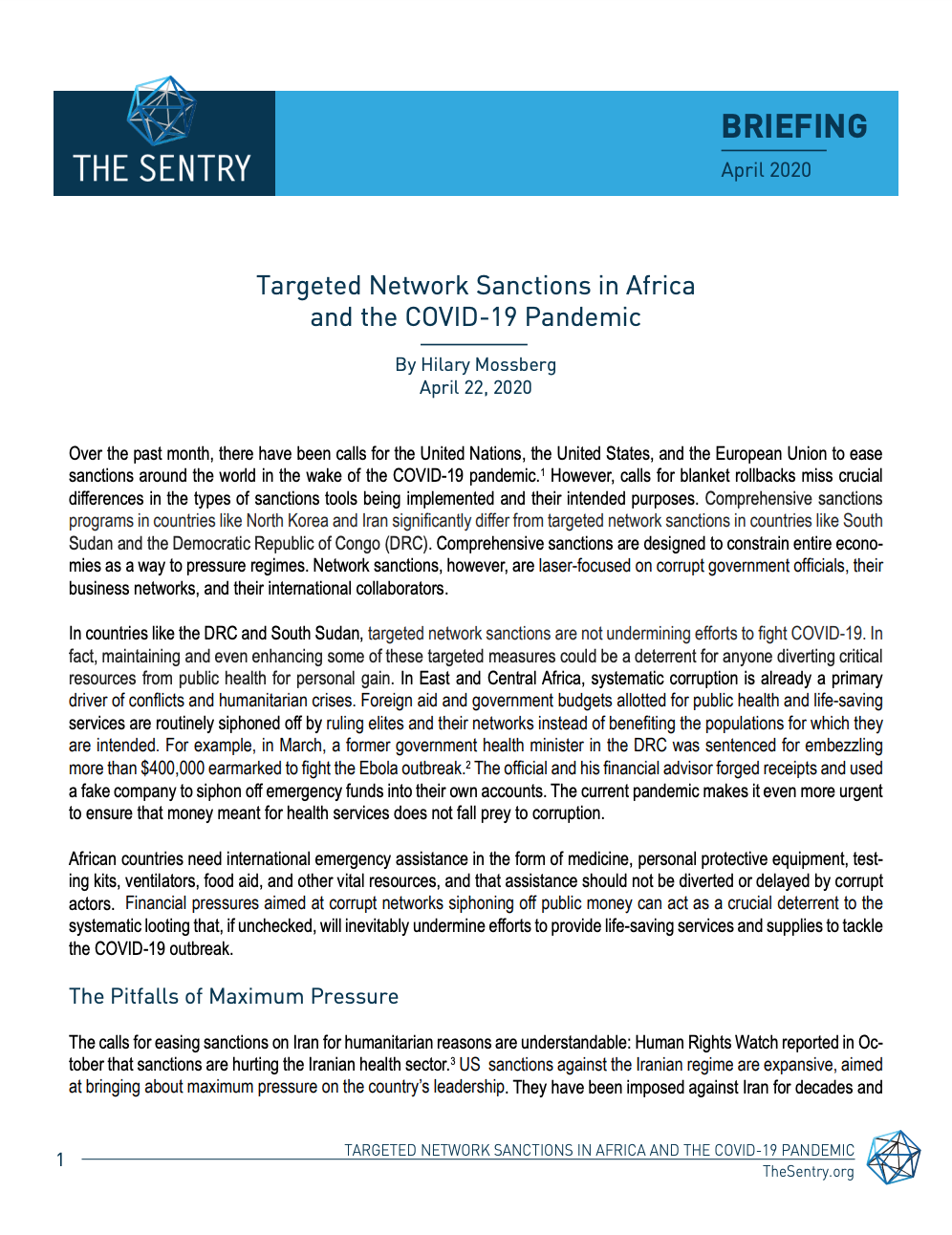Over the past month, there have been calls for the United Nations, the United States, and the European Union to ease sanctions around the world in the wake of the COVID-19 pandemic.* However, calls for blanket rollbacks miss crucial differences in the types of sanctions tools being implemented and their intended purposes. Comprehensive sanctions programs in countries like North Korea and Iran significantly differ from targeted network sanctions in countries like South Sudan and the Democratic Republic of Congo (DRC). Comprehensive sanctions are designed to constrain entire economies as a way to pressure regimes. Network sanctions, however, are laser-focused on corrupt government officials, their business networks, and their international collaborators.
In countries like the DRC and South Sudan, targeted network sanctions are not undermining efforts to fight COVID-19. In fact, maintaining and even enhancing some of these targeted measures could be a deterrent for anyone diverting critical resources from public health for personal gain. In East and Central Africa, systematic corruption is already a primary driver of conflicts and humanitarian crises. Foreign aid and government budgets allotted for public health and life-saving services are routinely siphoned off by ruling elites and their networks instead of benefiting the populations for which they are intended. For example, in March, a former government health minister in the DRC was sentenced for embezzling more than $400,000 earmarked to fight the Ebola outbreak.* The official and his financial advisor forged receipts and used a fake company to siphon off emergency funds into their own accounts. The current pandemic makes it even more urgent to ensure that money meant for health services does not fall prey to corruption.
African countries need international emergency assistance in the form of medicine, personal protective equipment, testing kits, ventilators, food aid, and other vital resources and that assistance should not be diverted or delayed by corrupt actors. Financial pressures aimed at corrupt networks siphoning off public money can act as a crucial deterrent to the systematic looting that, if unchecked, will inevitably undermine efforts to provide life-saving services and supplies to tackle the COVID-19 outbreak.

